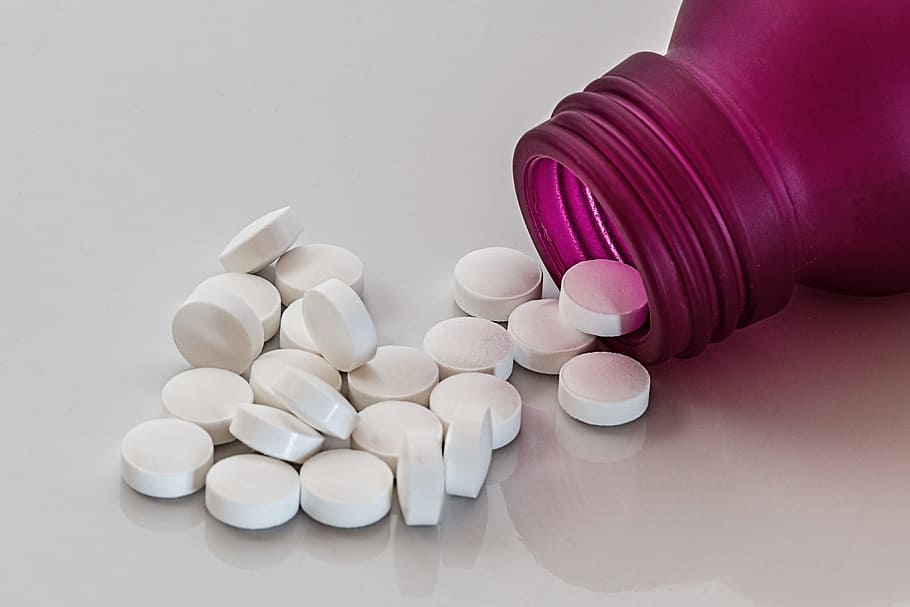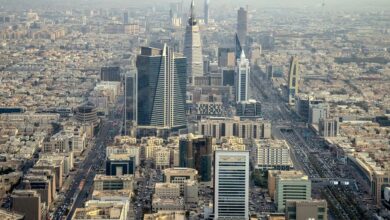The global war on drugs has failed. Or so claims a recent report by the Global Commission on Drug Policy (GCDP) – a panel of 19 politicians, intellectuals, and entrepreneurs collectively aiming to “bring to the international level an informed, science-based discussion about humane and effective ways to reduce the harm caused by drugs to people and societies.”
In its report, the GCDP claims that efforts by governments to solve the growing international drug problem have done more harm than good, wasting taxpayers’ money and indirectly cultivating illegal markets and subsequent violence in a futile attempt to fight a war that “has not, and cannot, be won.”
As an alternative to the unsuccessful tactics traditionally employed to battle the booming international drug industry, the GCDP urges governments to consider “models of legal regulation of drugs, to undermine the power of organized crime and safeguard the health and security of their citizens,” as well as “other experiments in decriminalization.” To support its argument, the report lists the more “humane and effective” policies adopted by countries such as Switzerland and the Netherlands.
But how much weight does this report – and its suggestions of decriminalization – carry in Egypt, particularly at a time of transition and change, where old laws are set to be rewritten and new ones introduced?
In 2010, the Egyptian People’s Assembly estimated seven million hashish users in Egypt, many of whom would embrace any move towards legalization. While it might be officially illegal to grow, sell, possess or consume hashish, the drug is still popular among all social classes, earning a significant place, many would argue, in modern Egyptian culture.
Also growing in popularity are other cheaper – and in most cases, more harmful and addictive – types of drugs, their respective markets still enjoying a boost after last year’s severe hashish shortage, which sent prices soaring and compelled users to turn to alternatives such as cocaine, heroin and over-the-counter painkillers.
University student Mohamed Amin shares the opinion held by many hashish enthusiasts: legalizing the drug would “solve all our society’s problems.”
“Can you imagine the effect it would have?” the 20-year-old asks. “Look at how high-strung people are, look at all the problems the average citizen faces in his daily life, and all the problems on the horizon.”
“People need to be able to relax, and give their minds a rest from all the hardships that come with living in this country,” Amin explains, claiming that “hashish is the best way to do that … and it brings people together.”
Egyptian officials disagree.
“There is no way hashish, or any other drug will ever be legalized in Egypt, nor should it be,” says Bahaa Zoheir, a commanding officer at the Egyptian government’s Anti-Narcotic General Administration, adding that “alcohol should be banned as well.”
“We are living in an Islamic society, with traditions and beliefs that must be preserved,” Zoheir argues. “It’s the role of the state to protect the individual from his or her self. If that’s the case, then how could I possibly allow them to take drugs and harm themselves in that way?”
Zoheir also claims that consuming or trafficking drugs is a “highly unpatriotic practice,” since none of these drugs, except for bango, a locally cultivated type of marijuana, are grown in Egypt. “If this stuff was grown in Egypt, then maybe it might have some kind of economic benefit, but the climate here does not permit the growth of good quality cannabis and opiates. All you get is low-quality stuff.”
Asked about the economic benefit of legalizing hashish and imposing a tax on it, Zoheir answers bluntly: “Who needs taxes? When we arrest drug users or dealers, we take their stuff anyway.”
The GCDP’s recommendations have similarly been rejected by the United Nations Office of Drugs and Crime (UNODC) through its own annual World Drug Report, which in many instances, directly contradicts statements and conclusions reached by the Global Commission’s research.
Faisal Hegazy, a program officer at the UNODC’s Cairo office, believes that legalization would ultimately bring “more disadvantages than benefits.”
“As Arabs, we lack moderation,” Hegazy states. “You see it in everything we practice, even religion. If you make it okay for people, especially young men, to smoke hashish, they won’t content themselves with a joint. They’ll smoke five or seven, and continue to smoke more as their tolerance increases.”
Once their tolerance reaches a peak, Hegazy worries, they’ll be forced to move onto a stronger, more satisfying drug.
Besides the familiar arguments of cannabis being a “gateway drug,” a first step in a downward spiral of drug addiction, Hegazy also points to problems such as male infertility, subsequent marital strife, and widespread apathy as side-effects of the nation’s favorite drug. Furthermore, he adds that, while the “gateway drug” label is “definitely true,” it is one that hashish and cannabis are quickly outgrowing, due to advances in bioengineering.
By the mid 1990s, Hegazy claims, scientists were able to enhance the levels of THC, the chemical in marijuana that induces a high, by 5 percent. In the following decade, and with increasing technological advances, that number doubled.
“A year or so ago, a strain of cannabis was introduced with THC levels enhanced by 35 percent,” Hegazy says. “That makes that particular type of cannabis stronger, and more effective, than heroin.”
“We still can’t predict what the widespread consequences will be,” Hegazy says of the strand, which he claims still hasn’t reached the Arab world. “But it’s clear that cannabis is no longer a ‘soft’ drug.”
All these reasons make Hegazy confident that “the Egyptian government will never legalize hashish,” not even, he claims, for medicinal purposes. “It’s like trying to discuss gender – this is an issue that’s more about society’s core principles than anything else.”
Rasha Mahmoud, vice general manager of Narconon Egypt, a drug rehabilitation center, agrees. “Think of how slow and inefficient things are here,” she says. “Now, imagine how much worse it would get if everyone was stoned.”
Unfortunately for dealers and casual consumers across the country, Zoheir, Hegazy and Mahmoud all agree that the only effective way to “control the problem” is through relentless police crackdowns, which, given the recent tension between security forces and civilians, could be a potential powder keg.
“It would be better for the police not to get involved in individual cases, and only take a superficial interest in bigger dealers, as they have been doing for years,” advises 41-year-old Hesham, a university professor, filmmaker and self-confessed “stoner." (Hesham’s name has been changed in this story.)
In Hesham’s opinion, “nobody in Egypt is ready for legalization."
"The government can’t even enforce traffic laws, and people aren’t any better at following the few rules that are enforced," Hesham says. Given the current state of uncertainty and barely-contained chaos, legalization and the ensuing confusion it would cause, are, according to Hesham, “the last thing this country needs right now.”
“Legalizing hashish or bango would give Islamist groups something to criticize the new government about, while giving detractors a reason to claim the new government is trying to keep them inebriated and passive," he says.
“The wisest course of action is to follow the path the government has been on for the past several years, which is to keep these drugs officially illegal, but widely tolerated,” says Hesham, adding that, in most cases, an individual possession or consumption charge can be avoided with a bribe. “The problem with that, though, is that it's unpredictable, and now bribery is supposedly a thing of the past,” he says.
At the other end of the drug chain from Hesham is Mado, a dealer who also operates under the aliases “LG,” “Matrix,” and “Chester Cheetos,” and who couldn’t be less concerned about the whole issue.
“This [GCDP] report is only for European countries,” he shrugs. “It has no effect or relevance here whatsoever.”
Mado has been dealing drugs since high school, he claims, selling everything from hashish to cocaine to heroin. He doesn’t sell bango (“that stuff’s for porters and peasants”) and is unaware of the 35-percent-enhanced cannabis currently making the rounds globally. But he’s sure that if it exists, it’s only a matter of time before Egyptian stoners enjoy its heroin-surpassing high.
“If the government wanted to put an end to drug use, they would put an end to drug use,” Mado states. “They know there are kids on pretty much every street corner every night, doing drugs. Police officers only bust these kids if they fall into their hands, or if they want some quick cash, or a joint to smoke.”
Mado also believes that decriminalization isn’t realistic because wider availability, along with the loss of the appeal of breaking the law, would lower demand.
“When something’s hard to find, or possess, you can charge more for it, like diamonds,” he reasons. “Every now and again, there’s a ‘shortage’ or ‘crisis’ to remind us how rare these drugs are, to increase the sense of value we put on them. It’s smart business, and legalizing drugs would mean splitting profits with more suppliers, merchants, and various other sources, and greedy people don’t like to split their profits.”
“Do you see now why the government will never legalize hashish?” Mado asks. “It would be bad for business.”




